What is Meditation? – Whenever we talk of meditation there must be the object of meditation, then only our meditation will be steady. Our mind needs a beautiful and permanent object to meditate otherwise it will slip off. The object of meditation is like a hook to the mind. For example, if you love somebody, your beloved becomes an object of your meditation. You don’t have to force your mind to think of the person you love rather your mind thinks of your beloved incessantly. Only thing is that you have to give your mind the true object of its meditation. In absence of such an object, our meditation will be flickering.
Read moreSearch for Happiness

Search for Happiness – The driving force behind all our actions is to seek happiness in this material world. If we do not derive any pleasure from activities, then we would never have an interest to perform them. That is the reason why a student burns the midnight oil to study hard, a family man works day and night, a scientist goes on researching, a philosopher writes so many books, a social worker serves the people in society and the list is endless. But the unfortunate part is that we do not get complete happiness and total satisfaction in this material world simply by performing our material activities. Although we see so many advertisements about happiness, practically speaking we see very few people are happy in this world. In this blog, we will go through what truly is happiness
Read moreBhagavad Gita Chapter 3 Summary – Karma Yoga
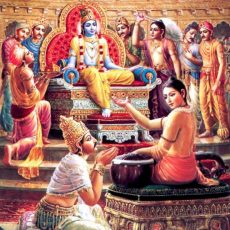
Bhagavad Gita Chapter 3 Summary – Karma Yoga – Krishna, in the previous chapter, recommends buddhi-yoga, or Kṛṣṇa consciousness as the path of self-realization. Arjuna thought of this as retiring from active life and practicing penances in a secluded place. But Krishna is also insisting him to fight the battle. So Arjuna starts this chapter by putting forward this confusion to Krishna. Krishna clears his confusion by explaining Karma Yoga. We will divide this chapter into 6 sections for better understanding.
Read moreBhagavad Gita Ch 4 Summary- Transcendental Knowledge
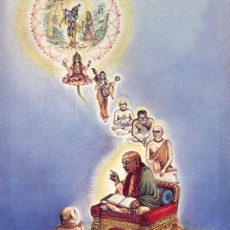
Bhagavad Gita Ch 4 Summary- Transcendental Knowledge – The 4th chapter of Bhagavad Gita is beautifully decorated with 42 verses. In this chapter, Krishna is explaining Arjuna the process to acquire Transcendental knowledge.
Read moreWhy do we fight?
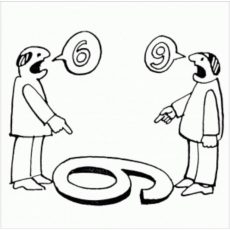
Why do we fight – You might have heard the idiom – “Under the same roof“. Normally loved ones, they live under the same roof. As family and friends, although we live under the same roof but often we also fight under the same roof. This is an old problem in every civilization, nationality, community and society. Why do we get divorced? Why we go to the court for different issues? In this blog, I will give a philosophical reasoning based on Bhagavad Gita which would surely help to resolve all your fighting issues.
Read moreBhagavad Gita Chapter 15 Summary – The Yoga of the Supreme Person
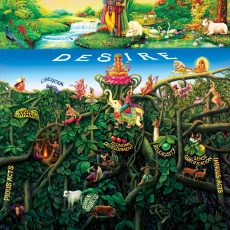
Bhagavad Gita Chapter 5th Summary – The Yoga of the Supreme Person – The 15th Chapter of the Bhagvat Gita has only 20 verses and is also known as Purshottam Yog. This Chapter as Lord Krishna himself says in verse 20th contains the most sacred knowledge, “This is the most confidential part of the Vedic scriptures, O sinless one, and it is disclosed now by Me. Whoever understands this will become wise, and his endeavours will know perfection”. In this chapter Jagdish(Krishna) , Jeev(Atma/soul) & Jagat (World) are very beautifully described. Any act which is auspicious or otherwise, birth or death is recited and is considered very sacred. The verses of this chapter are recited daily by students of many Gurukuls before beginning their day.
Read moreThe Goal of Education

The Goal Of Education – Seers in the past advocated of an education that helps one to attain freedom from nescience. In fact, a gifted individual with no morals is a threat to the society. Of late, the primary objectives have been to impart skills that will help our kids to make a career. We teach history to enable students to understand human behavior. Science is taught to understand the physical world. Mathematics is taught to quantify the world around us. We use the language to describe the world. Human creativity is nurtured through arts and culture. In spite of all our endeavors, we have failed to create people of character. This article will critically look at the model of education as imparted worldwide today.
Read morePOISON & NECTAR
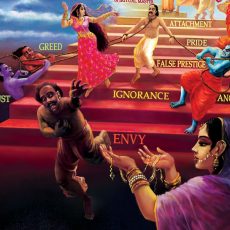
Poison & Nector – Why do poison come out first while chanting the Hare Krishna Mahamantra just like the first product that came out from the churning of milk ocean was Halahala – the poison.? This article will delve into this question philosophically.
Read moreBhagavad Gita Chapter 6 Summary – Dhyana Yoga
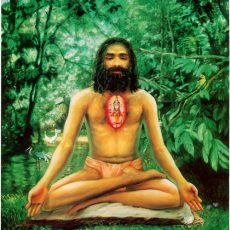
Bhagavad Gita Chapter 6 Summary – Dhyana Yoga – In chapter 5 of the Bhagavad Gita, Lord Krishna describes how to attain perfection by Niskama karma yoga or work without expectation of return. In the sixth chapter, Krishna explains the process of Ashtanga yoga or meditation as a means to control one’s mind and senses. We will divide this chapter into various sections and analyze the sections in depth.
Read moreHow Do Humans Acquire Knowledge?
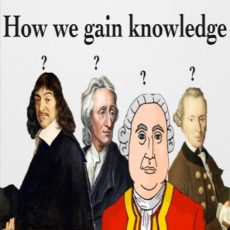
How do humans acquire Knowledge – This blog describes four methods of acquiring knowledge – direct perception, logical inference, historical evidences and hearing from authorized sources, the Pitfalls on the Path of Knowledge Acquisition and their Remedy and Importance of Hearing from Authorized Sources.
Read more